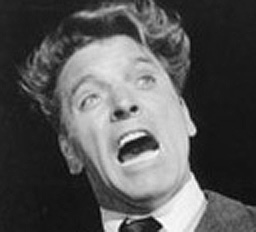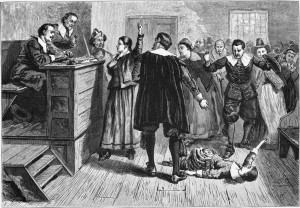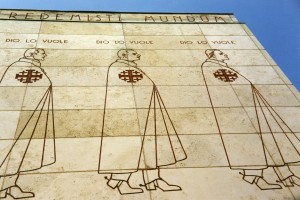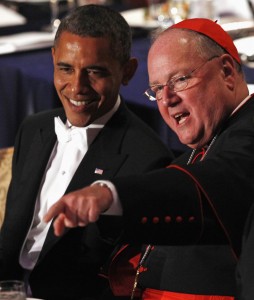 Writing in Politico, Jennifer Hecht laments the absence of any ‘out’ atheists in senior elective office.
Writing in Politico, Jennifer Hecht laments the absence of any ‘out’ atheists in senior elective office.
On Real Time with Bill Maher last August, Maher asked his guest, newly retired Rep. Barney Frank, if he felt liberated now that he was a private citizen. Frank said he did, since he no longer gets phone calls saying someone screwed something up and he has to “unscrew it.” Maher pressed on, saying, “You were in a fairly safe district. You were not one of those congresspeople who have to worry about every little thing. You could come on this show and sit next to a pot-smoking atheist, and it wouldn’t bother you.” Frank shot back: “Which pot-smoking atheist were you talking about?” Then he pointed back and forth to Maher and himself.
The audience loved it. Maher doubled over in laughter and delight. But while few seemed to care about Frank’s pot-smoking admission, atheists across the country—myself included—were disappointed that he hadn’t acknowledged his lack of religious belief sooner, when it could have made a real difference. We were left wondering why a man who served 16 terms in Congress and who bravely came out as gay all the way back in 1987 felt the need to hide his atheism until he was out of office. Was it really harder to come out as an atheist politician in 2013 than as a gay one 25 years ago?
Incredibly, the answer might be yes. For starters, consider that there is not a single self-described atheist in Congress today. Not one. It wasn’t until 2007 that Rep. Pete Stark, a Democrat from Northern California, became the first member of Congress and the highest-ranking public official ever to admit to being an atheist. (And even he framed it in terms of religious affiliation, calling himself “a Unitarian who does not believe in a supreme being.”) Stark was elected twice after this, but when the 20-term congressman lost his seat last year, it was to a 31-year-old primary challenger who attacked him as irreligious, citing, among other things, Stark’s vote against our national motto: “In God We Trust.”
Indeed, the same year that Stark came out, the Secular Coalition of America was able to identify only five atheist public officials in the entire United States. After Stark and a Nebraska state senator, the third-highest ranking atheist was a school-board president from Berkeley, Calif.—this despite the fact that, according to a 2012 Pew report, 6 percent of Americans say they don’t believe in a higher power. That leaves at least 15 million Americans without any elected officials to represent their point of view….
Hmmm, “representing their point of view”? There are many things that I might hope for from legislators. Agreeing with their thoughts about God is a very long way down the list.
When it comes to this sort of thing, I’ve always thought that the late Henry IV of France (1553-1610) was onto something when he explained (apocryphally at least) why he had converted to Roman Catholicism on ascending the French throne. “Paris,” he supposedly said, “is worth a mass”. Going through a (to him) presumably meaningless ritual was no big deal if it paved the way to power.
What mattered was what he did with that power. And what he did was to be a good king, with achievements that included crushing the fanatics of the Catholic League, and promulgating the Edict of Nantes, which granted a good degree of religious tolerance to France’s Protestant minority.
And so it should be here. If it takes a little hypocrisy for a good sound godless politician to get elected, so be it. Bring on the prayer breakfasts!
But one real cost to this silence it is the role that it has played in the rise of the assumption that those on the Right (except Randians and some of those wacky libertarians) are by definition religious, something that is by no means the case, as visitors to this site must surely know.
 The Daily Telegraph reports:
The Daily Telegraph reports:








